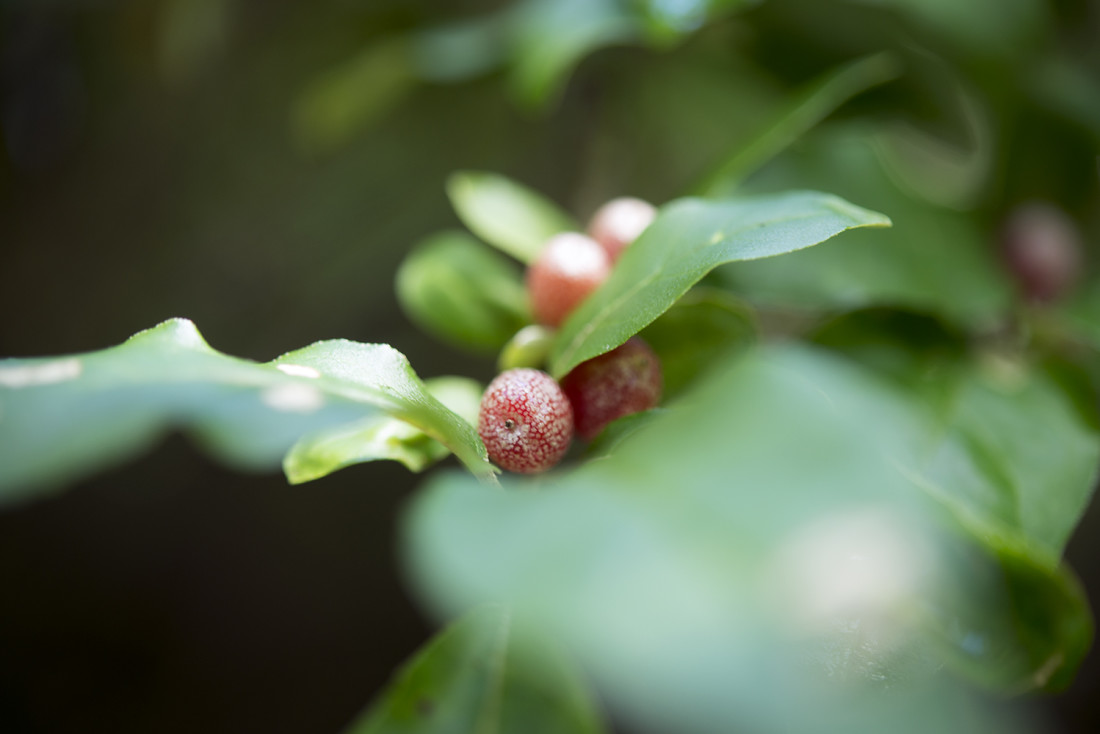“What is a weed? A plant whose virtues have yet to be discovered.” — Ralph Waldo Emerson
Bob Gale, ecologist and public lands director at MountainTrue, an environmental and conservation nonprofit in Asheville, recalls encountering this quote as a botany student in the 1970s. While it’s poetic symbolism stands, it’s relevance wanes when applied to the problem of non-native invasive plants, many of which continue to be introduced into new areas of Western North Carolina by gardeners and landscapers.
This was evident to Gale with the recent discovery in Watauga County of giant hogweed, an exotic invader whose sap can cause third-degree burns and even blindness. Although the find is unfortunate, Gale sees it as an opportunity to raise awareness of the deleterious effects of non-native plants on our fragile Appalachian ecosystems.
Unlike other imported species that do not proliferate problematically, Gale explains, the “non-native invasive plant” title is reserved for only a few offenders. Introduced from other continents, NNIPs have potential to negatively impact ecosystems by competing with native species.
In their natural environments, these plants are kept under control by forces in their ecosystems. “These controls simply don’t exist in our mountain region,” Gale explains. “As a result, native plants are often at a disadvantage when competing for light, water and seed dispersal.”
Jenna Mace of BB Barns Garden Center and Landscape Services notes a growing awareness of the dangers of NNIPs among her customers. Thanks in part to strict bans on NNIPs by homeowners associations, customers often seek to avoid them.
“We do still have a big demand for bamboo, though,” she says, explaining that some customers request the fast-growing plant to add privacy or shade to their yards. “A lot of customers don’t realize how invasive it is.” BB Barns chooses not to sell bamboo for this reason.
Some invasive plants are available at the shop, along with advice on controlling them, says Mace. “We do sell English ivy, but we sell it as an annual in pots. We really encourage people to leave it in pots,” she says.
An estimated $34.7 billion dollars is spent each year managing the nation’s non-native invasive plants, according to the N.C. Invasive Plant Council’s website. Harder to calculate are the costs to our ecosystem. Non-native invasives destroy biodiversity in our delicate Appalachian ecosystems, altering food sources for wildlife.
Wildlife forced to eat non-native foliage can suffer long-term effects, including disruption of a species’ gene pool. Gale cites a study on cardinals that consumed the red berries of the invasive bush honeysuckle. The berries replaced the birds’ natural food source, causing redder-than-normal plumage for males. Females, who instinctively choose the brightest males as mates, mistook the artificially red coloring as a sign of health, mating with genetically unfit males and producing compromised offspring.
Recently, community members teamed up with MountainTrue to clear NNIPs from Hummingbird Park in Montford and Richmond Hill Park in West Asheville. Gale notes that once the problem plants were removed, many native species returned. Optimistic that other communities can also be returned to ecological balance, Gale emphasizes the need for action: “[There are] ripples in every direction right now. We need a tidal wave.”
For planting guides and other details, visit the N.C. Invasive Plant Council at nc-ipc.weebly.com. To get involved with MountainTrue’s environmental conservation efforts, visit MountainTrue.org






Before you comment
The comments section is here to provide a platform for civil dialogue on the issues we face together as a local community. Xpress is committed to offering this platform for all voices, but when the tone of the discussion gets nasty or strays off topic, we believe many people choose not to participate. Xpress editors are determined to moderate comments to ensure a constructive interchange is maintained. All comments judged not to be in keeping with the spirit of civil discourse will be removed and repeat violators will be banned. See here for our terms of service. Thank you for being part of this effort to promote respectful discussion.